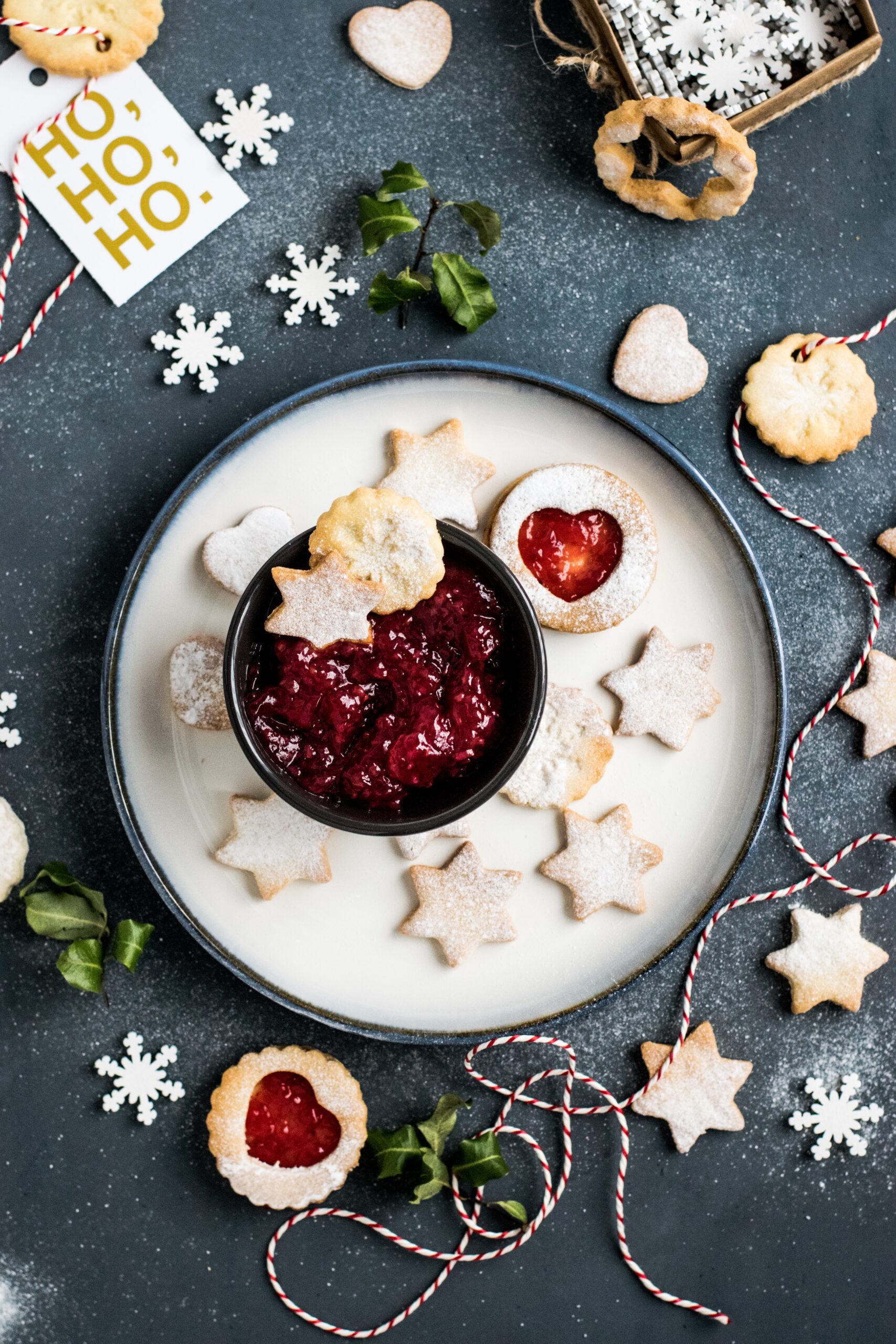The holiday season can be a time of joy, celebration, and togetherness. However, for some individuals, including those with chronic illnesses, it can also be a stressful time. In this post, we’ll explore 10 tips to navigate the holidays with chronic illness. These tips can help increase your confidence, preparedness, and hopefully enjoyment during this season.
10 Tips to Navigate the Holidays with Chronic Illness
1. Plan Ahead and Set Realistic Expectations
Planning is key when managing a chronic illness during the holidays. Reflect on your last few holiday seasons. Consider what went well, what felt like too much, and how much rest and recovery you needed.

So in whatever way your brain works best, outline on your calendar any travel, social events, family events, work events, etc. Write down the amount of time you need to recover. Start to critically look at what events are scheduled and what realistically is going to work with your needs. Depending on how close they are together, the amount of travel required, and your excitement to attend, see if there are any that just don’t make sense to go to.
Check your own expectations of yourself with what you really can handle. Your own expectations might also come from your family or friends too. This can be tricky because many families and friends want you to attend what they are hosting. Being able to go back to your plan and remind yourself of why it makes sense for you (and future you) can help you share your plan expectations with your family and friends.
Creating a realistic itinerary will help you enjoy the festivities without pushing your physical limits.
A Personal Example
One year, we drove 8 hours to see family for Christmas. Two days later, we drove another 4 hours to see more family. Then two days later we drove 13 hours home. Due to some of my chronic health specific challenges, it was too much for me. I was completely exhausted, had some symptom flares for a couple weeks following, and needed a lot of recovery time. Additionally, I wasn’t able to be as present as I wanted to be with family because of the fatigue, managing flares, and stress of travel. We decided we wouldn’t do that again, and came up with a few alternatives for future holiday visists.
2. Pace Yourself
Pacing will be supportive of keeping to your plan and expectations for the season. An important consideration for pacing during this time is giving yourself plenty of time for packing for any travel.
Using pacing can help to decrease the energy drain leading up to any holiday travel or events. If you are flying or driving for a visit, consider creating a list 2 weeks ahead of time. Then start to do small things from the list on each day or every couple of days (maybe 5-20 minutes). This can give you time to do laundry, refill any medications, buy toiletries, travel snacks, or travel supports without too much of a rush.
Pace yourself when it comes to attending events. Like discussed above, consider the time you need to feel your best between events, activities, or obligations.
3. Engage in Self-Care And Use your Resources and Tools
The hustle and bustle of the holidays can be overwhelming, especially for those managing chronic illnesses. It’s crucial to prioritize self-care to maintain physical and emotional well-being. Schedule regular breaks, get enough rest, and don’t be afraid to say no to activities that may drain your energy. By taking care of yourself, you’ll be better equipped to fully participate in the holiday festivities.
This time of year can be particularly draining and also for those with chronic illness bring up additional hidden challenges (thinking about travel, making sure you have enough medication, packing, support resources, navigating limiting diet restrictions).

Use Your Resources and Tools
Consider your list of things that are helpful for you and managing flares or stress and preemptively start doing them or schedule them. This includes scheduling specific massages before and/or after travel, getting some extra sleep or adding in a nap to your day, using mobility tools for prevention, taking an extra day off from work (if available), engaging in recharging activities, spending time in nature, etc.
When planning for travel, think about bringing some extra supports and chronic health resources. Neck pillow, compression socks or clothes, heating pads, TENS unit, noise canceling headphones, PRN medications, weighted blanket or objects, shoe inserts, mobility supports (cane, walker, chair). There tends to be more stress and need for energy during travel and being in a place that isn’t your home. Having access to your additional supports to help you handle the increase in stress can help with the recovery period afterwards and aid in preventing an increase in pain or flares. Even just knowing you have them with you, can help reduce stress because you know you have access to what you need.
Examples of What I Bring For Additional Supports When Traveling
I typically pack some more PRN medications to have on hand. I bring some smaller travel sized mobility tools (like small foam roller, lacrosse ball), sensory fidgets, and a heated blanket. I also bring noise canceling headphones, a portable air purifier and a neck pillow for flights, or additional pillows for car travel. Additionally, I bring my dog when driving. She is a great resource for me, and helps me to naturally build in breaks and time outs from gatherings by taking her outside or going on short walks.
4. Communicate Openly with Loved Ones
Open and honest communication with friends and family is vital, especially during the holiday season when you have a chronic illness. Let your loved ones know about your health needs, limitations, and any specific accommodations that might be necessary. This can help avoid misunderstandings and ensure that everyone is on the same page, fostering a supportive environment.
Another caveat of this, is to communicate about expectations for your time when you are with loved ones. Are they expecting you to help cook, bring a dish, decorate, and attend certain activities, run last minute errands? By getting an idea of what is planned or of family expectations, this can help you plan and communicate what you are able to do.
5. Prepare to Set Boundaries
While this is a broad tip and can be included in a few of the other tips to navigate the holidays with chronic illness, it is worth its own section. Setting boundaries is an important skill for anytime of year, but essential for navigating the holidays with a chronic illness. Think of what you are willing and unwilling/unable to do for or at family gatherings. Consider what topics about your health you are or aren’t willing to discuss (because it will likely come up).
Practice your communication of your boundaries for these things ahead of time. And the tricky thing about boundaries, is that you are in charge of enforcing your own boundaries. That might mean repeating yourself or possibly removing yourself from a conversation or situation. By practicing statements of what your boundaries are, it can be easier to say during conversations that might catch you by surprise. Remember, that setting boundaries is tough and can feel uncomfortable. Often people find setting them with family to be particularly challenging. For some more exploration you can check out these worksheets or check out Nedra’s boundary workbook.
6. Embrace Flexibility and Adaptability:
Living with a chronic illness often requires adaptability. Try and prepare yourself for being flexible when you make your original plan from tip 1. This might mean you adjust your expectations of yourself due to needing more rest than planned. You might leave an event earlier than you thought you would. Or in more extreme situations, deciding not to travel for a holiday that you thought you would. This can happen if a particularly tough flare comes on.
You might approach some of the planned activities with a “we will see how I feel on that day” mindset. Meaning you are not making a strong commitment to yourself that you will participate in every activity, but if you are feeling up for it you’ll join. This can take some pressure off of needing to do all of it.

When navigating the holidays with chronic illness, you might consider the traditions you and your family hold , and think on which ones might need to be adapted to work for your health needs. It can be challenging to accept traditions changing or not participating in all of them. It would be normal to feel sadness, frustration, or anger around this. Give yourself some time to accept any changes to traidtion that might need to be made. Bringing in flexibility during the holidays can help to reduce stress and allow for more enjoyable holiday experience.
7. Create or Advocate for an Accessible Environment
If you are someone who is hosting a holiday event, here are some things to consider when planning. Ensure that your holiday celebrations are accessible to everyone, including those with chronic illnesses. Consider the needs of individuals with mobility challenges, sensory sensitivities, or dietary restrictions. Providing a welcoming and accommodating environment demonstrates thoughtfulness and inclusivity, enhancing the overall holiday experience for everyone involved.
If you are attending, and the one with a chronic illness, ask your family or friend or work hosting the event about the environment, the food, bathroom situation, seating situation, lighting etc. This will help you decide if you would like to go and what you might need to do ahead of time to support yourself. You can also ask the host for accommodations if comfortable, like not lighting scented candles or having fragrance plug-ins, or if you are able to bring some dishes that work with your dietary needs. You can ask about music or lighting well as how many people are going to be there.
When you are able to get some information about the event ahead of time, it helps you to make more informed decisions about if you will go, how long you plan to stay, and if you will bring anything additional for yourself. Knowing this information can help to reduce stress and any unexpected stressors that might pop up.
8. Use Techonolgy to Stay Connected
If travel or in-person gatherings pose challenges for your health, use technology to stay connected with loved ones. Virtual celebrations, video calls, and online messaging platforms offer a way to participate in the festivities without compromising your well-being. While it is not the same as being in person, it can help you find balance in caring for yourself while also connecting with loved ones during the holidays. This ensures that you can share the holiday spirit with friends and family, even if from the comfort of your own home.
9. Connect With and Lean on Supports
It is important to stay connected with those in your life who support and understand you and your chronic illness. These might be other folks with chronic illness, a close friend, sibling, partner, or even therapist. Being able to share your authentic experience during this time with someone you trust can be helpful in not feeling lonely. Even if it is a phone call or text messaging with someone, staying connected this time of year is helpful.
If you work with a therapist, you can make plans with them about appointments or additional support if needed ahead of any challenging events. You might consider connecting in a support group for folks with chronic illness as this type of space can allow for more genuine connection. Sometimes knowing that you have a group to go to after an event, helps with navigating the stressors of it.
If you are going to be attending events with someone or some of the people you trust and understand your chronic illness, they can help support you in following your own plans. Talking with them ahead of time can help you know they are on the same page if you need to leave early or take a break.
10. Practice Gratitude and Mindfulness
If it feels genuine, practicing gratitude during this time can be supportive. This can look like reflecting on positive aspects of your life (1-3 things), the people and pets you value in your life, and any moments of fun or joy during the holidays. This can be particularly challenging when also navigating chronic illness because grief and loneliness can easily creep in. It can be difficult to come up with gratitude when there are tough aspects of living with chronic illness. So, if you are able to connect to 1 to 3 things that you are grateful for, it might help.
Engaging in some mindfulness practices leading up to and during the holidays can support stress management. You might consider relaxation techniques, deep breathing, somatic skills, spending time sitting or walking outside, or cuddling with a pet. For some more ideas, you can check out these 2 blogs that have regulation skills and ideas to consider for relaxation.

Navigating the Holidays with Chronic Illness Take Aways
Navigating the holidays with a chronic illness requires thoughtful planning, open communication, and a commitment to self-care. By implementing these tips, individuals with chronic illnesses can approach the festive season with confidence, ensuring a joyful and health-conscious celebration. Remember that the holidays can be a time for celebration and enjoyment with family and friends. This is not always the sentiment for everyone, and that is okay if you do not look forward to or enjoy celebrating. These tips can help you navgiate the season regardless of how you celebrate or don’t.

If you are looking for more support through the holidays, working with a chronic illness therapist can help. I am Lexi Gross, LCMHC, LPC, SEP, a chronic illness therapist in Asheville, NC. Reach out for Therapy for Chronic Illness.
Images used from Unslash and credit to:
Monica Sauro, Tim Bish, Maddi Bazzocco, Monika Grabkowska
© 2022-2026 Lexi Gross Counseling PLLC
